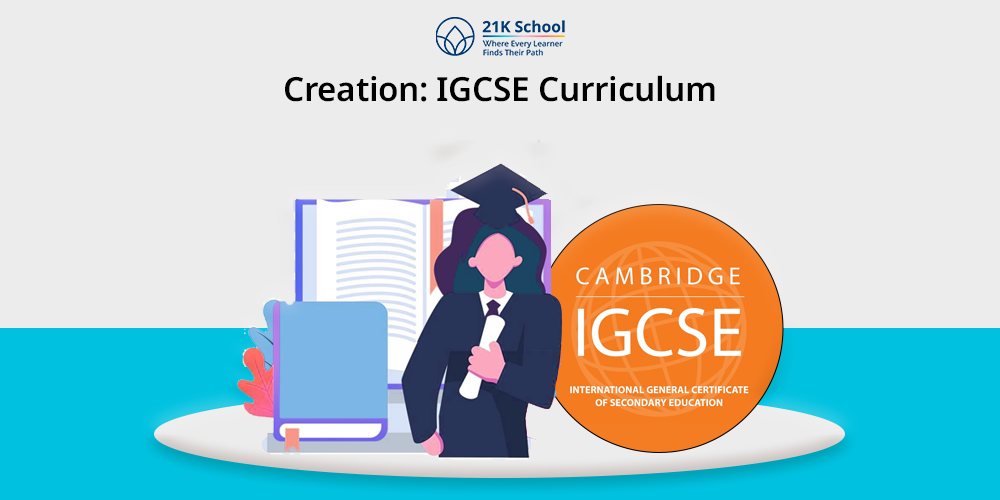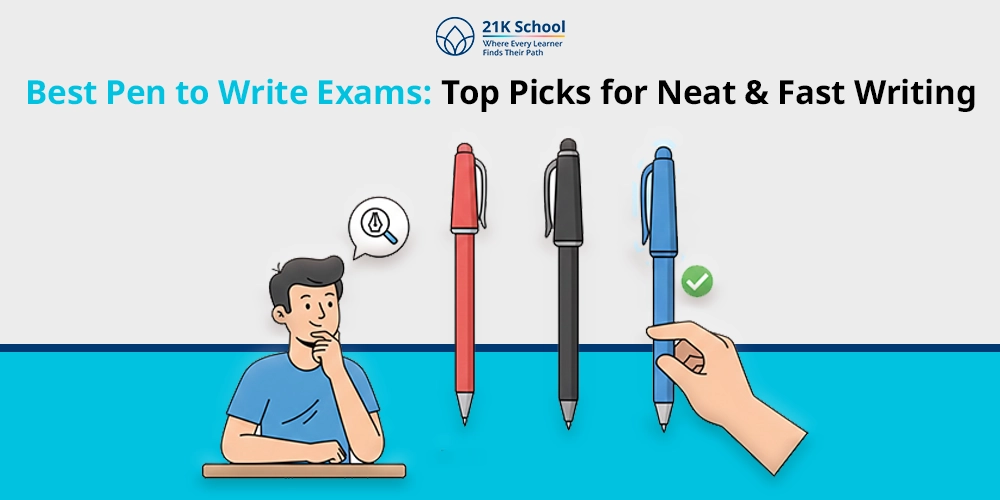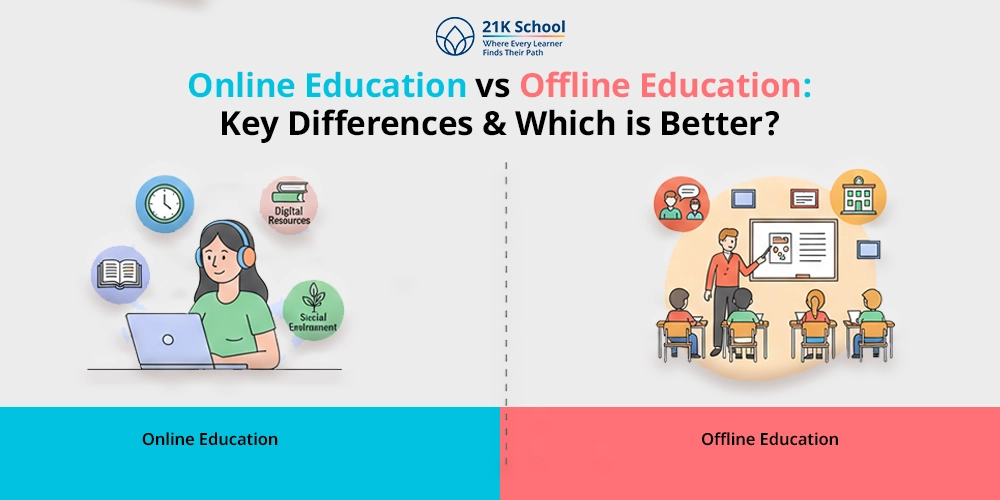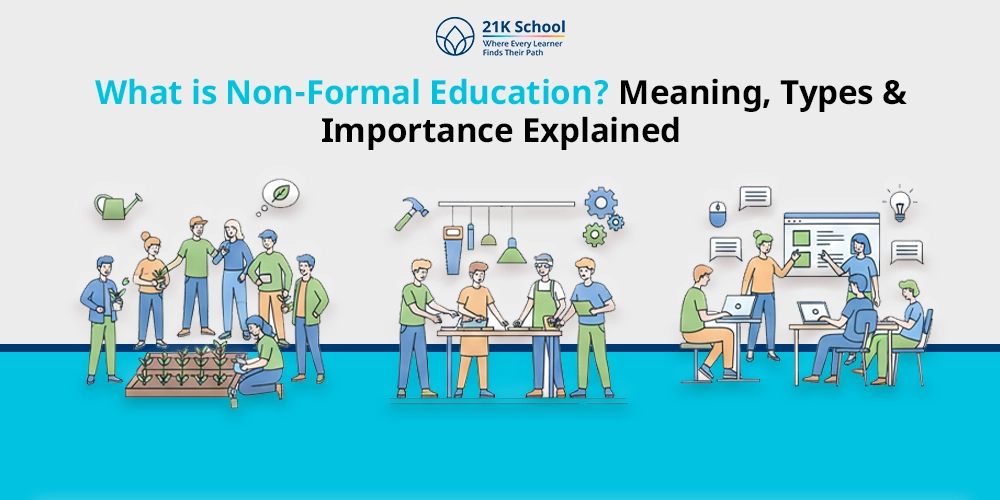
Are you someone interested in knowing the IGCSE curriculum?
Whether you are a learner trying to figure out your next step in learning, a parent looking for options for your kid or a facilitator who wants to understand the IGCSE curriculum.
If yes, then you have come to the right place. In this growing world of international education individuals are seeking new opportunities.
The IGCSE or in simple words International General Certificate of Secondary Education, is the most popular and respected qualification for learners aged between 14 to 16.
Whether you’re planning for university, aiming for flexibility in subject choices, or just want a solid academic foundation, the IGCSE has a lot to offer.
If you are curious then let’s get into everything you need to know about the IGCSE curriculum and subject flexibility to how it works.
Contents
- 1 What is the IGCSE?
- 2 What is an IGCSE Curriculum?
- 3 5 Key Features of the IGCSE Curriculum
- 4 Subject Groups in IGCSE Curriculum
- 5 How to Choose the Right Subjects in IGCSE- 5 Ways
- 6 Grading System in IGCSE Curriculum
- 7 5 Benefits of IGCSE Curriculum
- 8 6 Challenges and Solutions of IGCSE Curriculum
- 9 IGCSE Vs CBSE Vs ICSE – Key Differences
- 10 IGCSE Core Curriculum v/s IGCSE Extended Curriculum
- 11 4 Learning Strategies to Study IGCSE Curriculum for Future Growth
- 12 Conclusion
What is the IGCSE?
IGCSE stands for International General Certificate of Secondary Education. It is a worldwide recognized program for learners for two-year academics usually in grades 9 and 10.
It’s an international counterpart to the UK’s GCSE, offered by Cambridge Assessment International Education. Its curriculum is ideal for learners of the 21st-century.
What is an IGCSE Curriculum?
The IGCSE curriculum aims to develop learners’ knowledge, understanding and skills in various subjects.
It helps in preparing them for higher education such as A-Levels, IB or other pre-university studies.
- Origin: IGCSE curriculum is developed by Cambridge International (CIE), also offered by Edexcel.
- Purpose: The purpose of the IGCSE curriculum is to to provide a broad and balanced education and prepare learners for A-Levels, IB Diploma or national equivalents.
- Core Philosophy: Core philosophy includes skills-based, international perspective, subject flexibility.
5 Key Features of the IGCSE Curriculum
IGCSE curriculum offers a broad and balanced education with lots of subject options, world wide recognition and a focus on practical skills and critical thinking .
Here’s key features of the IGCSE curriculum one must know:
1. Globally Recognized
The IGCSE curriculum is globally recognized, which means it is internationally accepted by universities and employers who offer jobs.
It focuses on developing well-rounded students with strong academic foundations by a diverse range of subjects and assessment methods that combine coursework, practical tests, and written exams.
2. Flexibility and Choice
The IGCSE curriculum is popular for its flexibility, subject choices and many more key features offered to learners.
This allows them to design their learning experience by choosing subjects that align with their interests, strengths, and future goals.
3. Core Subjects and Assessment
The core subjects and assessment makes the IGCSE curriculum effective for learners. Core subjects like English, Mathematics and Sciences with a wide variety of optional subjects.
While assessment includes both coursework and examinations. They are designed to evaluate academic, critical thinking and practical application.
4. Focus on Critical Thinking
he IGCSE curriculum focuses on critical thinking by encouraging learners to analyze information, evaluate evidence, and solve problems instead of just memorizing facts.
This approach prepares learners for further education and guides them with valuable life skills for the future.
5. Preparation for Further Studies
The IGCSE curriculum is created for those preparing for further studies from academic to essential skills.
It encourages them to develop analytical and problem-solving skills , and manage their time effectively.
Subject Groups in IGCSE Curriculum
The IGCSE curriculum is designed into 5 subject groups. It includes Languages, Humanities and Social Sciences, Creative and Vocational, Sciences and Mathematics.
In this curriculum learners select any subjects from each group to create a broad and balanced curriculum.
Here’s an elaboration of group for better understanding of Cambridge IGCSE curriculum:
Group 1: Languages
The first group includes first languages, second languages, and foreign languages. Examples include English, French, Spanish, and Chinese.
Group 2: Humanities and Social Sciences
Group 2 subjects consist of History, Geography, Economics, and Sociology.
Group 3: Sciences
This group 3 provides Biology, Chemistry, Physics, and Combined Science (which combines the three sciences).
Group 4: Mathematics
This includes Core Mathematics, Extended Mathematics and Additional Mathematics.
Group 5: Creative, Technical, and Vocational
In group 5 individuals can avail subjects such as Art and Design, Music, Drama, Business Studies, Accounting, Computer Science, and more.
IGCSE learners can choose one or more subjects based on their interest from each of these groups. Remember to choose subjects based on future academic goals.
How to Choose the Right Subjects in IGCSE- 5 Ways
Selection of a right subject is crucial because it focuses on learners interests and strengths, research subject options, consider your future goals, and seek advice.
Here’s a more detailed breakdown:
1. Understand Your Interests and Strengths
Selection of the right IGCSE subjects is crucial for learners’ future academic and career growth.
This can be done by understanding your interests and strengths, subject requirements for higher studies and balancing the choices for an effective education.
2. Research Subject Options
IGCSE curriculum provides subject flexibility to every learner. One can choose the desired IGCSE subjects which are crucial for future learning and growth.
Remember to consider the interests, strengths, and future goals when making these choices.
It’s also crucial to research everything from subject availability, prerequisites to how subjects align with potential university courses or career paths.
3. Consider Future Goals
Don’t rush decisions, consider future goals, academic strengths, and interests while selecting subjects.
Learners who go with a balanced approach, combining required subjects with those aligned with your passions gain high academic success and future planning.
4. Seek Advice
To make informed decisions one needs to seek advice from parents, facilitators and peers.
Consider the subject’s relevance to your desired or planned for university courses and potential careers.
Also, ensure you have a balanced subject load and consult with teachers or career counselors for guidance.
5. Aim for Balance
Learners should aim for a mix of subjects that provides a well-rounded education and keeps options open for further studies and career paths.
Grading System in IGCSE Curriculum
The IGCSE grading system follows an alphabetical scale from A to G*, with A* being the highest and G the lowest passing grade.
It also has U or Ungraded used for those who are unable to fulfill the minimum standard for a G.
Let’s explore the IGCSE grading system in detailed:
- A star or A*: It is the highest grade which indicates exceptional performance.
- A: Excellent performance.
- B: Good performance.
- C: Satisfactory performance.
- D: Pass.
- E: Marginal pass.
- F: Basic understanding, with some gaps.
- G: Basic understanding, with significant gaps.
- U or Ungraded: Not achieving the minimum standard for a G.
5 Benefits of IGCSE Curriculum
The IGCSE offers a lot of benefits to learners including global recognition, a broad range of subjects, emphasis on critical thinking, and preparation for higher education.
Key Benefits of the IGCSE Curriculum:
1. Global Recognition
One of the most significant advantages of the IGCSE is its qualifications are globally recognized by universities and employers.
This makes it a valuable asset for students considering international study or careers.
2. Broad Curriculum
The curriculum provides a diverse range of subjects. This allows learners to explore their interests and tailor their learning route based on their strengths and future goals.
More importantly, it promotes a balanced education beneficial for both students and facilitators.
3. Skill Development
IGCSE mainly focuses on practical application of knowledge through project-based learning and real-world scenarios.
Practical skill development prepares them for future challenges. The curriculum is designed to enhance skills like analytical thinking, research skills, communication and teamwork, independent learning etc.
Also read how to improve analytical skills in your kids.
4. Flexibility and Personalization
One of the most attractive points of the IGCSE is its flexibility and personalization. Learners can choose subjects based on their strengths and goals.
IGCSE schools also offer flexibility to design subject combinations and schedules to fit their own needs.
This personalized learning path guides learners to develop confidence and take ownership of their education. They can easily transition to A-Levels, IB or other post-IGCSE programs.
Explore the benefits of personalized learning in 21st century students.
5. Critical Thinking and Problem-Solving
IGCSE encourages learners to think critically, analyze information and problem solving skills . These are crucial for academic and professional success.
Whether it’s interpreting scientific data, debating social issues, or solving mathematical problems, the curriculum trains students to think independently and approach problems technique.
6 Challenges and Solutions of IGCSE Curriculum
Students face several challenges while learning through the IGCSE curriculum including exam-stress , adapting to a rigorous and potentially unfamiliar curriculum and navigating the cost.
Let’s explore these challenges in depth and find out the solutions for the future growth:
1. Rigorous Workload
The IGCSE curriculum has a rigorous workload, especially the extended course. It requires learners to manage a substantial amount of material across multiple subjects.
Due to continuous assessments, and comprehensive exam preparation, learners may feel exhausted by the volume of work.
2. Subject Difficulty
By choosing wrong or difficult subjects like Mathematics, Physics, and English Literature leads learners to the wrong path.
It can become challenging to pass due to their conceptual depth. Some learners may struggle to keep up with the pace or understand complex topics.
3. Time Management and Procrastination
Balancing studies, extracurricular activities, and personal life can be challenging, requiring effective time-management skills .
Procrastination can lead to last-minute cramming, poor performance, and added stress. Juggling extracurricular activities, social life, and academics requires discipline.
However, with proper knowledge one can resolve these challenges through developing effective study habits, seeking support from tutors and peers etc.
4. Utilize Online Resources
Strategic use of online resources, including dedicated platforms, study guides, and expert tutoring, can help learners to overcome these challenges.
It will also enhance the IGCSE learning experience.
5. Seek Tutoring or Support
Seek Tutoring or Support can be benefits to overcome IGCSE curriculum challenges.
Connect with peers, parents, elderly children or counselors for emotional support and guidance during challenging times.
6. Break Down Tasks & Eliminate Distractions
Breaking down tasks & eliminating distractions helps in time management. One needs to create a study timetable, setting realistic goals, and prioritizing small tasks to ease the burden.
Schools and parents can also provide encouragement and monitor progress and guide them to stay motivated.
IGCSE Vs CBSE Vs ICSE – Key Differences
CBSE is a national board in India. While IGCSE is an international qualification recognized globally.
Here’s a detailed comparison of IGCSE, CBSE, and ICSE, three major school education boards for learners:
| S No. | Particulars | IGCSE | CBSE | ICSE |
| 1. | Governing Body | International General Certificate of Secondary Education governed by Cambridge Assessment International Education (CAIE), UK. | Central Board of Secondary Education governed by the Ministry of Education, Govt. of India. | Indian Certificate of Secondary Education governed by Council for the Indian School Certificate Examinations (CISCE), India. |
| 2. | Curriculum Focus | It uses international, practical, and analytical approaches. It includes a wide range of subjects in which students choose based on interests. | An Indian, theoretical, standardized approach is used. It consists of fewer elective subjects with more focus on core subjects. | It balances both theoretical + practical approaches. It includes a wide range, with emphasis on English, Science & Arts. |
| 3. | Global Recognition | IGCSE is widely accepted by international universities like the UK, US, Canada, Australia. | CBSE is well-recognized in India. However, it has limited international recognition. | ICSE is accepted in India and recognized by some international institutions. |
| 4. | Suitability & Flexibility | Learners aiming for international education or careers. | Learners preparing for Indian entrance exams like JEE, NEET etc. | Learners who want a strong foundation in English and humanities, or a broader subject base. |
| 5. | Grading & Exams | The grading and includes A* to G which is based on performance. And exams are Conducted in Feb–May or Oct–Nov. | It offers numeric grades based on marks. And exams are held in March. | Here marks-based with percentage and exams are held in March. |
| 6. | Affordability | The IGCSE board costs are high due to the international curriculum and exam fees. | CBSE board has low to moderate fee due to subsidized and more government schools. | Indian Certificate of Secondary Education is moderate and affordable which mostly includes private schools. |
| 7. | Popular Cities and Schools | Popular cities and schools for the IGCSE are mostly metro cities and international schools. | Popular cities and schools for CBSE are widely available across India. | ICSE is mostly private schools in urban areas. |
If you are someone looking for detailed difference between IGCSE and other recognized boards, here you can go through each IGCSE vs ICSE , IGCSE vs GCSE , IGCSE vs A-level , IGCSE vs CBSE , IGCSE vs O-level .
It’s time to explore each comparison in detail to choose the right board for your kid from a very young age. Stay tuned with 21K School to know more about modern education .
IGCSE Core Curriculum v/s IGCSE Extended Curriculum
The IGCSE Core and Extended curricula are two ways learners can choose from within the International General Certificate of Secondary Education.
The Core curriculum aims on foundational knowledge and is targeted at students expected to achieve grades C to G.
On the other hand, the Extended curriculum get deeper into subjects, catering to more academically inclined students aiming for grades A* to E.
Here’s a comparison between both IGCSE Core Curriculum v/s IGCSE Extended Curriculum for better understanding:
| S No. | Category | IGCSE Core Curriculum | IGCSE Extended Curriculum |
| 1. | Target Audience: | Target audience are learners who are aiming for a basic understanding of subjects; typically those who find the subject challenging. | Target audience are learners who are more academically capable and can handle greater depth. |
| 2. | Curriculum Depth: | The IGCSE core curriculum covers the essential and foundational concepts. | IGCSE extended curriculum includes all of core and more complex and abstract topics. |
| 3. | Grade Range: | Grades range IGCSE core curriculum is C to G only. | Grades range IGCSE extended curriculum A to E*. |
| 4. | Purpose: | The purpose of IGCSE core curriculum is to ensure students grasp basic knowledge and skills needed for everyday life and further training. | The purpose of IGCSE extended curriculum is to prepare students for advanced study like A-Levels, IB, or university-level subjects. |
| 5. | Example: | In Maths Core: basic algebra, shapes, and arithmetic. | In Maths Extended: includes Core + advanced algebra, trigonometry, and probability. |
4 Learning Strategies to Study IGCSE Curriculum for Future Growth
To excel in the IGCSE curriculum and foster future growth, it’s crucial to employ effective learning strategies.
Here’s a detailed information of learning strategies to study IGCSE curriculum for future growth:
1. Syllabus Mastery
Mastering the IGCSE syllabus ensures future growth. It’s crucial to understand the curriculum, create a study plan, utilize effective learning techniques and manage time effectively.
Learners need to focus on understanding key concepts, practicing with past papers and looking for guidance when needed to build a strong foundation.
2. Prioritize Tasks
While learning through the IGCSE curriculum, learners should prioritize tasks by focusing on effective study strategies, time management, and subject prioritization.
By creating a study timetable, using previous papers, asking for help when required and developing strong critical thinking skills and problem-solving skills.
3. Seek Help When Needed
It is beneficial for learners to use effective learning strategies and seek help when needed.
This includes creating a study schedule, practicing old exam papers and taking help from facilitators, parents or tutors.
4. Utilize Online Resources
To implement effective learning strategies learners need to utilize online resources easily available on the internet.
This can be done by using platforms like Quizlet for flashcards, engaging with interactive learning materials, and practicing with past papers.
Conclusion
The IGCSE curriculum is an ideal educational foundation that offers far beyond textbooks and exams to learners.
It is popular due to its global recognition, wide subject choice, skill development focus and critical thinking orientation. This ensures learners towards a successful academic and professional journey.
While having a lot of challenges such as a rigorous workload, subject complexities, and time pressure, it is equally rewarding for leaders.
By implementing smart strategies such as mastering the syllabus, managing time, seeking support, and leveraging online tools, learners can resolve the challenges of IGCSE and lay the groundwork for lifelong learning and growth.
In the 21st era where innovation is valued, adaptability and global competence, the IGCSE curriculum has become the best choice of holistic education.
With learners, facilitators and parents’ dedication, strategic effort and the right mindset, one can turn their IGCSE journey into a bright and promising future.



